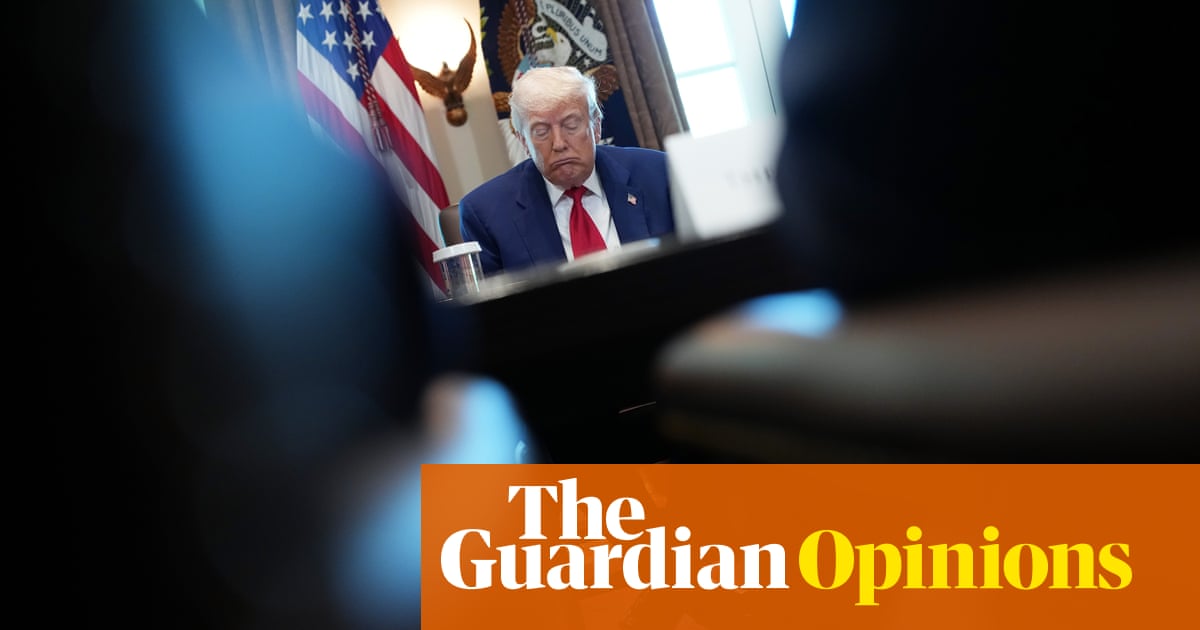Trying to understand Donald Trump’s across-the-board tariffs based solely on economic theory won’t work. As the US president himselfsaid: “Chronic trade deficits are no longer merely an economic problem, they’re a national emergency that threatens our security and our very way of life.” That may be why, as manyeconomistshavepointedout, there’s simply no good economic case for his plans.
Butfewcommentatorshave understood that facts and figures aren’t the whole point of the tariffs. As always, economics is part of a broader political vision. The tariffs help Trump make his claim that a way of life is under threat and he alone can protect it.
Indeed, the political meaning of Trump’s tariffs is in the idea itself: “protectionism”. He is not just telling people that he’s going to improve the economy. He’s signaling that he’s going toprotecta way of life, even – orespecially– if it hurts others, by creating, in theory, good-paying factory jobs that could sustain local communities. (Never mind that thekeyto any industry’s ability to sustain communities are the practices of labor organizing Trumpopposes.) On the campaign trail, hesaid: “Whether the women like it or not, I’m going to protect them.” He’s now saying the same thing to the country as a whole.
Such non-economic justifications for economic policy are nothing new. They are part of what the sociologist Max Webercalled“the spirit of capitalism”. Weber argued that capitalists had to justify a claim unique in human history: profit is good. For millennia before, philosophers had argued the opposite. Jesus, for example, told his disciples that it was likelier for a camel to go through the eye of a needle than for a rich man to get into heaven.
But with capitalism, the pursuit of profit became good. How did it justify this? Weber said that’s where “spirit” comes in. He pointed to notions of work as a holy value in Protestantism and Calvinist ideas about how monetary success proved you were among God’s chosen few. These spiritual views engendered a work ethic and made capitalist excess palatable. At least for a time.
When capitalist greed becomes unpalatable, new spirits emerge. To understand Trump’s protectionist spirit, we have to understand this preceding history.
After the Great Depression, people saw that they might lose everything no matter how hard they worked and so the work ethic spirit lost its power. In its place, social democratic states gave a new collectivist spirit to capitalism. Social democracy limited excess and provided a moral logic by offering stability to all through a linked system of jobs and life-long public services.
This collectivist spirit began to break down in the 1960s under the pressures of stagflation, oil shocks, and criticisms of a conformist, consumerist lifestyle. In response, capitalism’s spirit transformed itself again.Accordingto two scholars of this transitional period, Luc Boltanski and Ève Chiapello, it did so by ingeniously incorporating the criticisms: it became about nomads, connections, flexibility, creativity.
It was no longer the staid cubicle office man; it was now the exciting creative entrepreneur who knows no allegiances and is at home in the chaos of disruption. Hence Silicon Valley. Hence the destroyed manufacturing bases where jobs were converted to low-wage poverty traps and where Trump now finds many of his most loyal supporters. Hence his protectionist vision of a new spirit of capitalism.
There is some merit in this desire to help those who lost out, but, as Weber noted, the spirits of capitalism can mask more sinister desires. By also pushing massivetax breaks for the wealthy, Trump is hoping that tariffs can provide rhetorical appealwithoutradically changing the social order.
The tariffs say: we will protect your community by hurting those who profited off your pain and became rich through globalization. That’s why Trumpblamed“globalists” for the dip in the stock market after the tariffs were announced: “A lot of [those selling stocks] are globalist countries and companies that won’t be doing as well … Because we’re taking back things that have been taken from us many years ago.” But that ignores the real ways in which jobs have been lost and communities upended. What the tariffs leave unsaid is that they won’t address the real issues underlying today’s economic pain: guttingwelfare, failing toretrain workers, under-utilizingtechnology, and lettinginequalityrise relentlessly.
Trump is right that capitalism, in a period of untrammeled greed and injustice, needs a new spirit to show it the way. But the trouble with a protectivist spirit is that it implies that some get protected while others get hurt. That will just create new cycles of dismay – as we are already seeing with the tariff whiplash and draconian immigration policies.
What we need is a democratizing spirit, one that isn’t about protecting some and hurting others, but instead guides us to work collectively to ensure that all people can lead decent and meaningful lives even in a chaotic world. There areeconomic policiesfor this, such as fair trade, meaningfulindustrial policy, more worker representation on corporate boards, and more cooperatively owned businesses.
ButDemocratsalso need to learn from Trump and emphasize the spirit. They need to show that their democratic vision is not just technocratic, but as powerful and affirming as the feeling of being protected.
The desire for this spirit may be why the rallies of Bernie Sanders and Alexandria Ocasio-Cortez have drawn record crowds. Most attenderssaythey aren’t there to hear the policies, which they already know. They’re there for the “community”, and toexperiencethe “closest thing to a version of America you actually want to live in”, one that works for all of us. If the Democratic party can catch that spirit, they will not only win elections; they might just bring an end to decades of destruction.
Avram Alpert is a lecturer in the Princeton Writing Program. His most recent book is The Good-Enough Life
